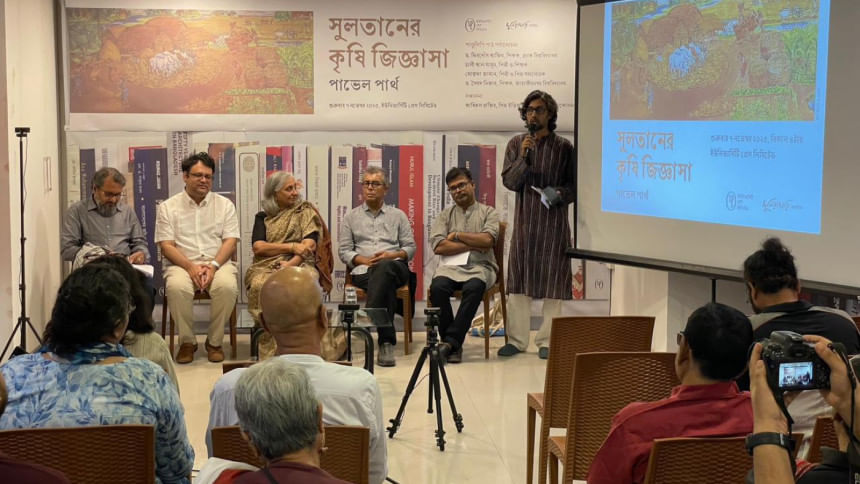‘Agricultural Quest of Sultan’ manuscript reviewed at UPL event

As part of the centenary celebration of legendary artist SM Sultan, University Press Limited (UPL) and Duniyadari Archive jointly hosted a presentation and review of the manuscript "Agricultural Quest of Sultan" by writer and researcher Pavel Partha. The event took place on yesterday, at UPL's head office in Green Road, Dhaka .The session featured distinguished discussants including Dr Firdous Azim of BRAC University, Dhali Al Mamun, artist and educator, Mustafa Zaman, artist and art critic, and...
As part of the centenary celebration of legendary artist SM Sultan, University Press Limited (UPL) and Duniyadari Archive jointly hosted a presentation and review of the manuscript "Agricultural Quest of Sultan" by writer and researcher Pavel Partha. The event took place on yesterday, at UPL's head office in Green Road, Dhaka .
The session featured distinguished discussants including Dr Firdous Azim of BRAC University, Dhali Al Mamun, artist and educator, Mustafa Zaman, artist and art critic, and Dr Syed Nizar of Jahangirnagar University. The discussion was moderated by Amirul Rajiv, art historian and environmental movement organiser .
In his presentation, Pavel Partha examined Sultan's engagement with agrarian life through five key research questions, critiquing the lack of a comprehensive archive of Sultan's works and the tendency to mythologise his persona rather than analyse his art. He argued that mainstream narratives often overlook the agricultural politics and historical realities embedded in Sultan's paintings, reducing his farmer figures to mere symbols of "primitive" labour. Partha's study, rooted in his long fieldwork experience, seeks to uncover the "agricultural quest" within Sultan's artistic vision .
The manuscript is divided into seven chapters, including "Sultan's Paintings and the Ground of Agricultural Quest", "Narail and Sultan's Seed Collection", and "Neoliberalism vs Our Own Struggle". Each chapter reflects Sultan's portrayal of rural life, agrarian resistance, and the tension between colonial legacies and local struggles .
The event concluded with reflections from the discussants on the relevance of Sultan's artistic inquiry in today's socio-political context and the need for more research-based art criticism in Bangladesh.